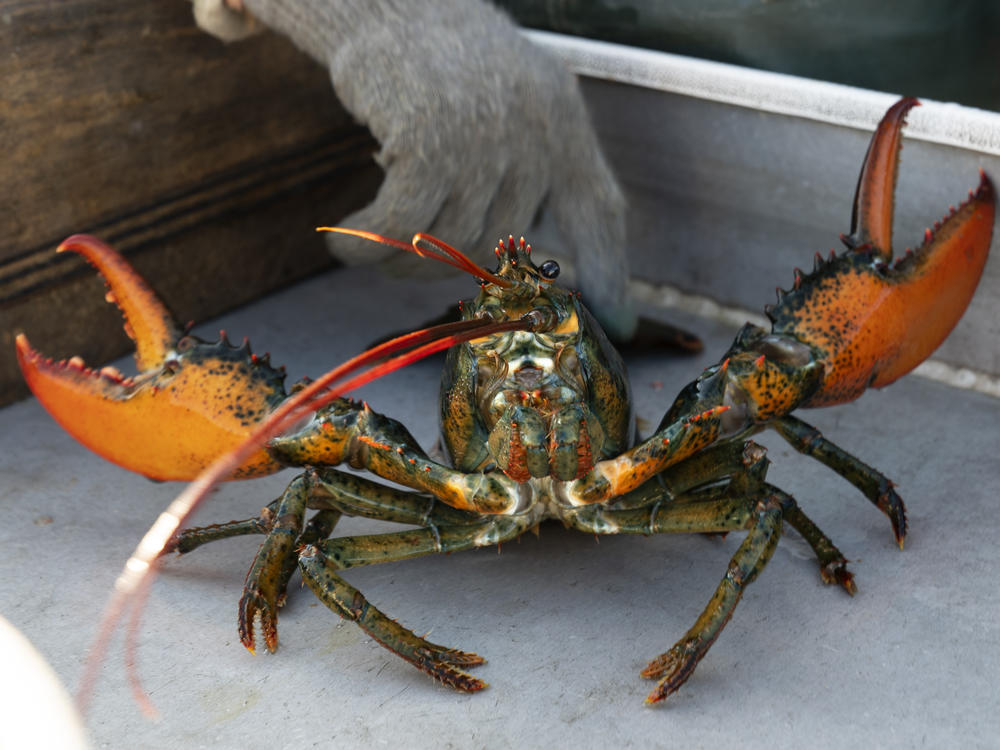Georgia High School Musical Theatre Awards at 8p
Section Branding
Header Content
The Maine lobster industry sues California aquarium over a do-not-eat listing
Primary Content
PORTLAND, Maine — A coalition representing the Maine lobster industry is suing an aquarium on the other side of the country for recommending that seafood customers avoid buying a variety of lobster mostly harvested in their state.
Industry groups including Maine Lobstermen's Association are suing the Monterey Bay Aquarium in California for defamation, arguing in a lawsuit filed Monday that their prized catch shouldn't be on a "red list" published by Seafood Watch, a conservation program it operates.
Last year, Seafood Watch put lobster from the U.S. and Canada on its list of seafood to avoid due to the threat posed to rare whales by entanglement in fishing gear used to harvest American lobster, the species that makes up most of the U.S. lobster market.
Endangered North American right whales number only about 340 and they've declined in recent years.
But the lobster industry is arguing to the U.S. District Court in Maine that the aquarium's recommendation relies on bad science and incorrectly portrays lobster fishing as a threat to the whales. The lawsuit asks the court to force the aquarium to remove "defamatory statements" from its website and materials, court records state.
"This is a significant lawsuit that will help eradicate the damage done by folks who have no clue about the care taken by lobstermen to protect the ecosystem and the ocean," said John Petersdorf, chief executive officer of Bean Maine Lobster Inc., one of the plaintiffs in the lawsuit, in a statement.
The aquarium says its recommendations are correct based on the best available evidence. It says right whales are indeed vulnerable to entanglement in fishing gear.
The lawsuit ignores "the extensive evidence that these fisheries pose a serious risk to the survival of the endangered North Atlantic right whale, and they seek to curtail the First Amendment rights of a beloved institution that educates the public about the importance of a healthy ocean," said Kevin Connor, a spokesperson for the aquarium.
Another group, Marine Stewardship Council, last year suspended a sustainability certification it awarded Maine's lobster industry over concerns about harm to whales. The loss of sustainability recommendations has caused some retailers to stop selling lobster.
The U.S. lobster industry is based mostly in Maine. The industry brought about 98 million pounds of lobster to the docks last year. That was less than the previous year, but historically a fairly high number.
Copyright 2023 NPR. To see more, visit https://www.npr.org.

